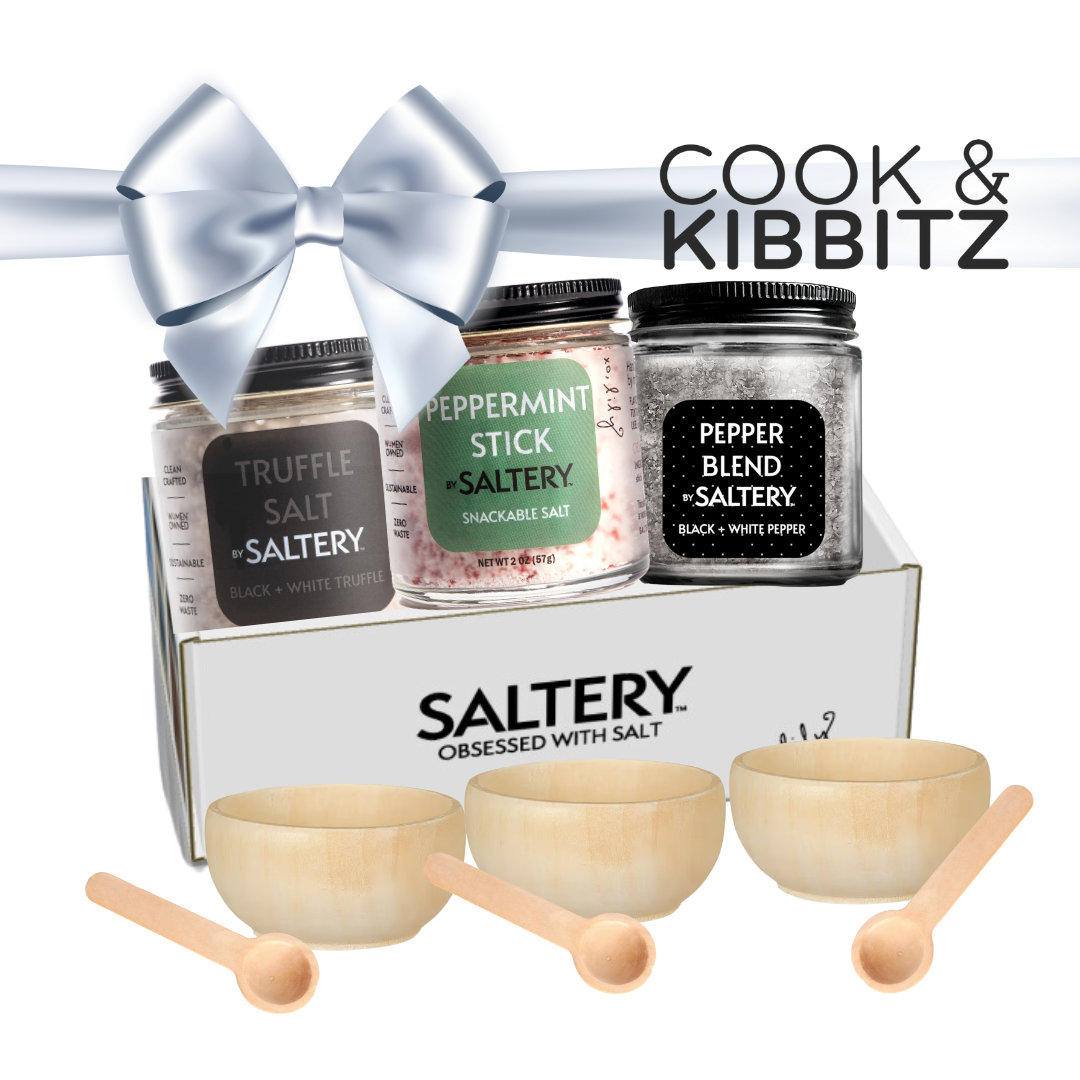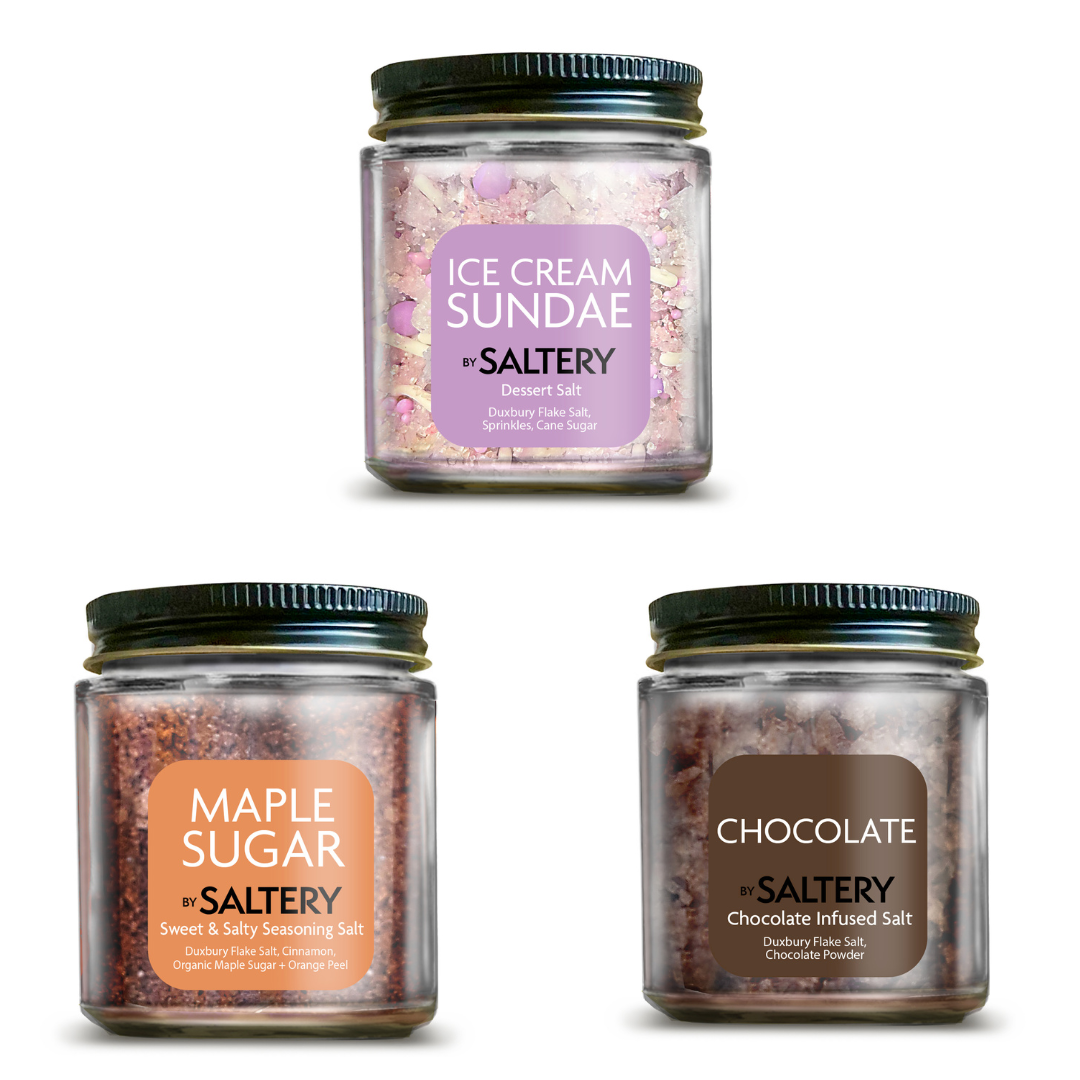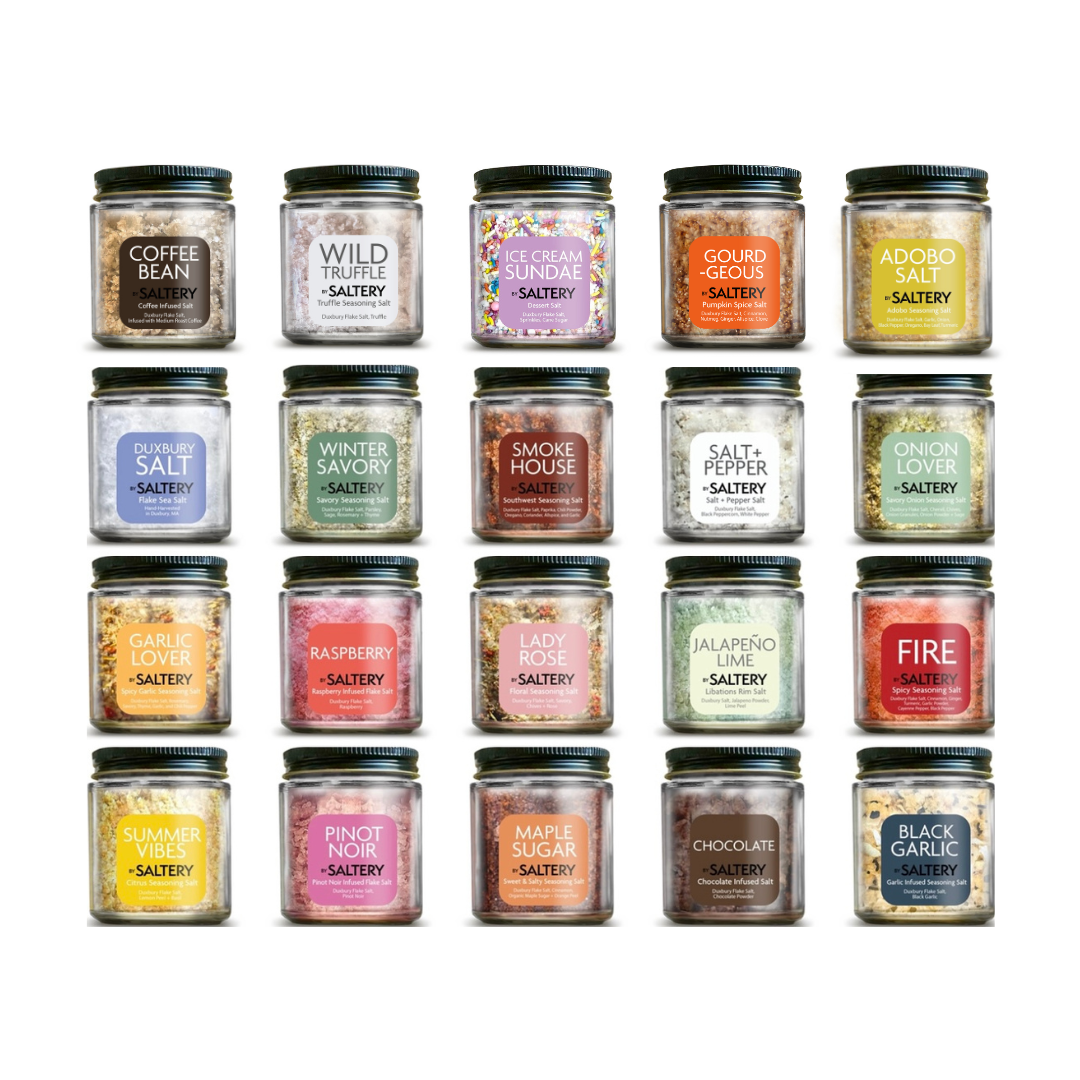Top 5 Types of Salt
Top 5 Types of Salt: What to Use + When. Plus more info!
Kosher Salt: Kosher salt is a coarse-grained salt that tends to be made by compacting granules into large, irregularly shaped crystals. It got its name from use in koshering meat, as its coarse texture helps draw out blood. Unlike table salt, kosher salt doesn't contain iodine or anti-caking additives. This does not necessarily mean the salt is kosher-certified. Sourced from salt mines or solar evaporated ocean water. Finding the cleanest, highest quality kosher salt is a must.
VOTE: Should Saltery offer a kosher salt?
Sea Salt: Sea salt is harvested from evaporated seawater. It comes in various forms, including fine, coarse, and flakes of varying sizes, depending on the size of the crystals and the method of harvesting. Sea salt can contain minerals such as magnesium, potassium, and calcium, which contribute to its nuanced flavor profile. The type of grain produced depends on the time, temperature and methodology of production (solar, heated evaporation or other). Sea Salt can be used throughout the cooking process and has a more nuanced flavor than table salt because of the mineral composition. Often heralded as healthier because sea salt is typically free of the dyes and additives in table salt.
Table Salt:
Table salt is the typical salt shaker small grain option you have at many restaurants. Highly processed in factories, table salt was introduced as a public health measure to combat iodine deficiency disorders (IDD) in many parts of the world. Adding iodine to salt is an effective way to ensure that people receive an adequate daily intake of this essential nutrient, as salt is a common and widely consumed ingredient in many foods. This salt is stripped of other minerals, cleaned - sometimes with chemicals. At Saltery, we do not offer a table salt like this, mainly because there are so many all-natural varietals with greater benefits.
Flaky Sea Salt: Sea salt is harvested from evaporated seawater. It comes in various forms, including fine, coarse, and flakes, depending on the size of the crystals and the method of harvesting. Sea salt can contain minerals such as magnesium, potassium, and calcium, which contribute to its nuanced flavor profile. The type of grain produced depends on the time, temperature and methodology of production (solar, heated evaporation or other). At Saltery, we have worked very hard to create and are equipped to make one type of sea salt: flaky sea salt which we package as Duxbury Salt. MK Kosher Certified! The indoor evaporation methodology yields a superior finishing salt, yet also takes significant work, which is reflected in the price. Perfect as a finishing touch to any meal, pinch to taste is the best way to use this type of salt.
Himalayan Pink Salt: Mined from the ancient salt collections in the Himalayan Mountains in Pakistan, this salt is heralded as having a rich mineral complex and gets its' pink hue from these minerals, especially the iron. Widely ranging in quality and size, this is a great option if you are looking to expand your mineral intake. We offer one type of himalayan pink salt, from a trusted source.
EXPLORE: PINK FLAKE
EXPLORE: PINK + WHITE FLAKE
GRINDER Salt: Love using a grinder or mortar + pestle? Grinder salt is essentially course sea salt with grains to large to pinch or sprinkle, thus the need to grind them up. These large grains come from salt mines or long-term solar evaporation fields. The variations in quality range widely and ensuring the source is free from contaminants is a must. We've received many requests for a Grinder Salt option, would you like to see this from Saltery?
"There's so much nuance to salt and it's really fun to explore. Embrace your inner salt lover and have some delicious fun along the way!" xo, lily





